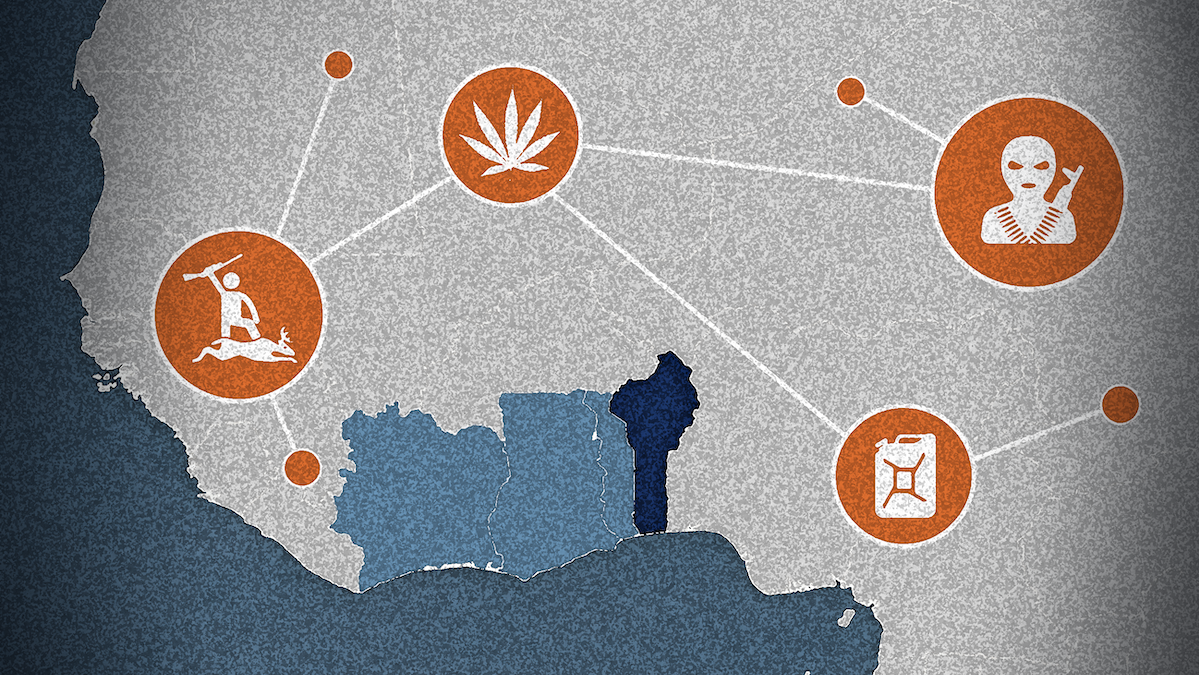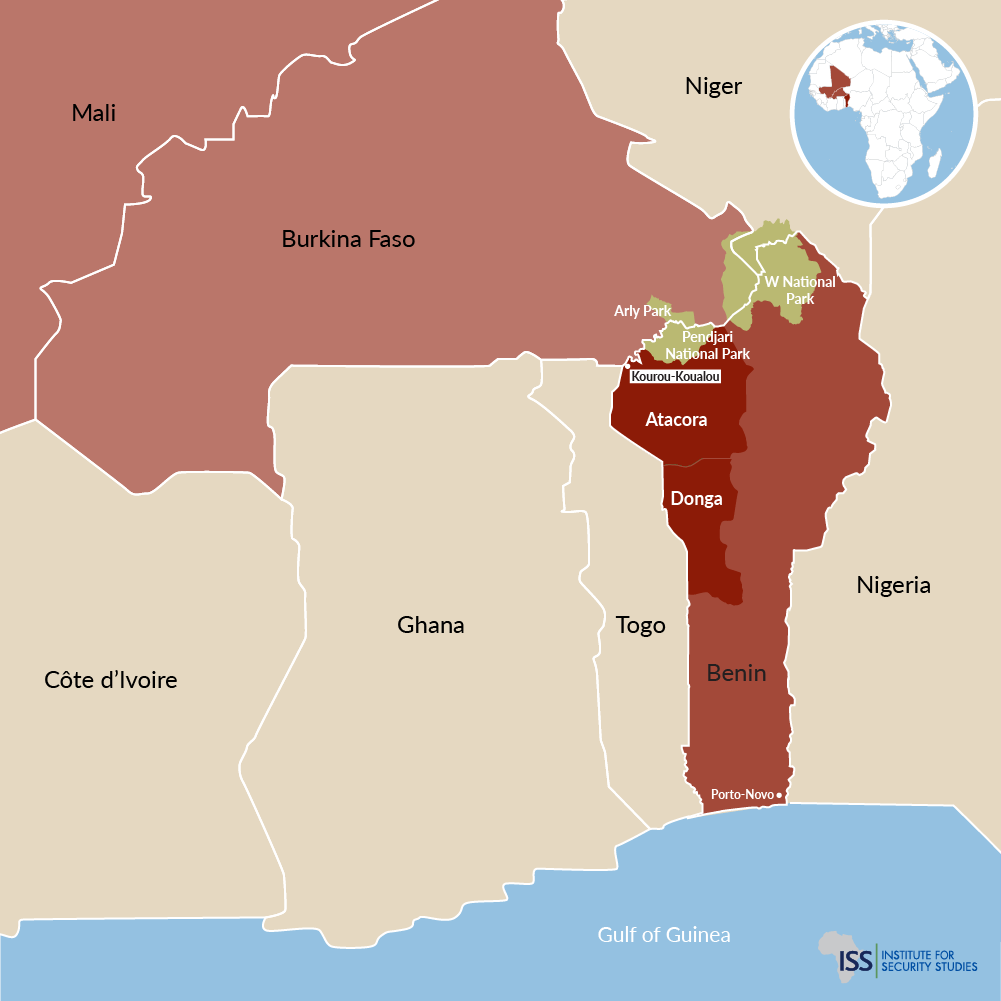ISS TODAY OP-ED
Benin needs to focus on combatting nation’s criminal activities that fuel violent extremism

Authorities should consult communities on how to break the ties between smugglers, hunters and violent extremist groups.
Terror attacks in northern Benin have been on the rise since 2019. These incidents, attributed to the Group for the Support of Islam and Muslims (GSIM) and the Islamic State in the Greater Sahara (ISGS), attract media and political attention but are only the tip of the violent extremism iceberg in Benin.
A study carried out by the Institute for Security Studies (ISS) in Benin reveals that these groups have benefitted from illicit activities that existed long before terrorist attacks started in the country’s northern border areas. These dealings include fuel smuggling, Indian hemp trafficking and illegal hunting.

Number of terrorist attacks in Benin. (Source: Acled and ISS media monitoring)
Violent extremist groups have forged alliances with those involved in these illicit activities, to secure their supply of human, operational and financial resources. Extremists exploit people’s resentment against the state and their need to protect and preserve their livelihoods. They allow access to certain areas, offering services and security guarantees to those who collaborate with them, and facilitate the marketing of trafficked products.
Extremists operate discreetly, exploiting vulnerabilities in Benin and beyond its borders, as well as within communities. They took advantage of the territorial dispute between Benin and Burkina Faso over the Kourou-Koualou region, which until February, resulted in the absence of a national government presence in the area. Due to the security and administrative vacuum, the locality became lawless and several illicit activities flourished.

Sites of terrorist attacks and illicit activities in northern Benin (Graphic: Amelia Broodryk/ISS)
This situation has opened the way for extremist groups, who have been gradually establishing themselves in eastern Burkina Faso since 2018. They have made Kourou-Koualou an area for retreat, operations and the supply of various products including food and fuel.
Collaboration between traffickers and extremists in Kourou-Koualou has allowed the groups to obtain the fuel they need for transport and to launch attacks. It has also enabled terrorists to raise money from the payments made by traffickers in exchange for protection and security in the smuggling zone. This allows trafficking to continue unhindered.
Violent extremists have also been involved in trafficking Indian hemp, some of which is produced locally in the Atacora and Donga departments. The contraband is transported from Kourou-Koualou to other destinations in Burkina Faso and Mali in return for payment.
The frustrations of local communities with the regulation of hunting traditionally practised in the Pendjari and W national parks are also exploited. This prompted Beninese hunters — who chose not to participate in programmes offered by the African Parks Network — to hunt illegally in the Arly Park on the Burkina Faso side. Collaboration between extremists and hunters enables the extremists to obtain food and other goods derived from illegal hunting. These ties also allow hunters to be recruited into terrorism.
The ISS study also revealed that illegal gold panning and arms and ammunition trafficking could pose additional risks. Armed groups active in Benin could use these illicit activities to access resources for their operations.
So in addition to responses aimed at reducing terrorist attacks in Benin, authorities need to work upstream on the less visible activities that constitute the supply chains used by violent extremist groups. Measures must also go beyond arresting traffickers or dismantling their networks, to include combating cross-border organised crime. Sustainable responses are needed that address root causes.
State efforts to weaken insurgents by cutting off their supply chains must also consider the complexity underlying links between violent extremism and illicit activities. Some of these activities such as fuel smuggling and illegal hunting generate income for locals and enable them to access basic social services that the state often fails to provide.
That means communities must be involved in designing and implementing responses aimed at weakening terror groups. This will help reduce possible negative repercussions, including the disruption of livelihoods, that could drive disaffected populations into the arms of extremists.
It is also imperative to avoid stigmatising those who have ties with violent extremists. Such an approach could prove counterproductive if it accentuates the frustrations that terrorists already use for recruiting members.
Finally, strategies to cut supply chains must include integrated cross-border coordination. Otherwise, groups targeted by security forces will simply choose other routes. DM
Jeannine Ella Abatan, Senior Researcher, Institute for Security Studies (ISS) Regional Office for West Africa, the Sahel and the Lake Chad Basin.
First published by ISS Today.


















 Become an Insider
Become an Insider
Comments - Please login in order to comment.